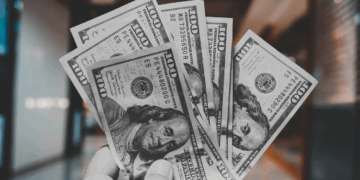- Psychedelics in the workplace may be linked to enhanced mental wellness, performance, leadership development, and teamwork.
- Despite potential benefits, the use of psychedelics at work carries legal risks due to their illegal status in many areas, and can create ethical dilemmas and uncomfortable work environments, aside from unpredictable effects on individuals’ performance and behavior.
- While some companies are starting to integrate psychedelic therapy as a perk, widespread acceptance in workplace settings hinges on balancing therapeutic benefits with legal, ethical, and safety concerns, requiring informed guidance and regulation adherence.
Historically, psychedelic substances such as LSD, psilocybin (found in magic mushrooms), and MDMA have been associated with counter-culture movements and recreational use. However, recent studies have indicated their potential in treating psychological disorders and enhancing creativity, which has sparked a conversation on their viability within the context of the workplace.
As a top business and finance professional turned microdosing expert, Peggy Van de Plassche believes microdosing will make its way into the boardroom.
After spending 20 years in the financial services and technology industries as an executive and a VC, Van de Plassche now speaks and writes about the benefits of alternative medicines, such as microdosing psilocybin for professional and personal growth.
She believes it may be key to preventing burnout, improving stress and anxiety in high-pressure environments, and enhancing performance for all people in business, not just CEOS.
“Some workplaces have been utilizing psychedelic substances like psilocybin in the office, albeit discreetly due to the legal and social implications associated with these substances,”
“Some workplaces have been utilizing psychedelic substances like psilocybin in the office, albeit discreetly due to the legal and social implications associated with these substances,”she told Allwork.Space. “However, it’s important to note that the use of psychedelics in the workplace is still relatively uncommon and often occurs in more progressive or experimental environments.”
“Typically, industries such as venture capital firms and tech companies are more likely to explore the use of psychedelics, sometimes through organized retreats abroad or informal individual microdosing practices. The companies more open to alternative approaches to enhancing creativity, problem-solving, and employee well-being are few and far between,” Van de Plassche explained.
While workplace support is still relatively rare, a poll by the University of Berkeley found that 61% of Americans support legalization of psychedelics.
The impact of psychedelic usage in the workplace can vary significantly.
“Employees may experience benefits such as enhanced mental wellness, improved performance, increased creativity, and strengthened interpersonal connections — which contribute to better stress management and a more positive work environment,” she said.
There are potential downsides to consider, though.
“Some employees may undergo profound personal insights or shifts in perspective during psychedelic experiences, leading them to reassess their career goals or values,” Van de Plassche cautioned. “This can result in individuals feeling disenchanted with their current roles or even prompting CEOs to reconsider the direction of their companies. Additionally, the illegality of psychedelics at the federal level in the U.S. poses legal and ethical risks for both employees and employers engaging in such practices.”
What are the benefits of psychedelic usage in the workplace?
The debate on psychedelics at work weighs their promise for creativity and wellness against legal and safety concerns. As these once-taboo substances gain interest for their potential to enhance cognition and alleviate stress, employers and policymakers must grapple with the possible benefits and significant risks involved.
According to Van de Plassche, psychedelic usage in the workplace can bring tremendous value across various aspects:
Enhanced Mental Wellness: Microdosing psilocybin has been reported to promote mental well-being by reducing symptoms of anxiety and depression, fostering a more positive outlook, and increasing overall psychological resilience. In the workplace, this can translate to reduced stress levels, improved mood, and enhanced emotional regulation among employees.
Enhanced Performance: Microdosing psilocybin will likely lead to improvements in cognitive function, creativity, and problem-solving abilities. Employees may experience enhanced focus, productivity, and innovative thinking, which can positively impact their performance and efficiency in completing tasks and projects.
Leadership Development: Psychedelic experiences, when integrated thoughtfully, can foster profound insights, self-awareness, and personal growth. This can benefit leaders and managers by enhancing their emotional intelligence, empathy, and ability to communicate effectively with their teams. Leaders who have undergone psychedelic experiences may demonstrate more authentic leadership styles and inspire greater trust and loyalty among their subordinates.
Teamwork and Collaboration: Psychedelic experiences have been associated with increased feelings of interconnectedness, empathy, and compassion. In a workplace setting, this can promote a sense of camaraderie, collaboration, and cohesion among team members. Employees may feel more connected to their colleagues, leading to improved teamwork, communication, and cooperation on projects.
What are the dangers of introducing psychedelics in the workplace?
On the flip side, this type of drug usage can also create a potentially uncomfortable and unethical work environment.
Psychedelic usage in the workplace has the potential to significantly disrupt the functioning and safety of the work environment, infringe upon legal standards, and possibly negatively impact employee well-being.
A recent report by The Wall Street Journal exposed a heavy expectation set by Elon Musk for his business associates to partake in drug use, detailing specific instances where Musk has used drugs like ketamine and liquid ecstasy.
High-profile associates from Tesla and SpaceX, including board members and directors, are implicated in the culture as participants or enablers. They reportedly felt compelled to engage in this substance use due to concerns over their wealth and social status.
Aside from the issue of peer pressure, the unpredictable nature of psychedelic experiences means that an individual cannot guarantee consistent performance while under the influence.
The use of psychedelics can lead to altered states of consciousness that are not conducive to the professional and social norms expected in a workplace. For instance, workers may experience a dissolution of boundaries which might result in inappropriate or disruptive behavior.
Psychedelics may also evoke intense emotional experiences, which when experienced in a non-supportive or non-therapeutic setting such as a workplace, can be unsettling and counterproductive.
Moreover, the legal status of psychedelic substances must be considered. In many jurisdictions, these substances are classified as illegal and their possession, use, and distribution are subject to penal consequences.
Introducing these substances into the workplace would not only pose ethical concerns but also legal risks to both employees and employers, potentially resulting in liability, loss of reputation, and legal sanctions.
While there is growing interest in the therapeutic potential of psychedelics for certain mental health conditions, their use is typically controlled, with administration carried out in clinical settings by qualified professionals.
Unsupervised use, particularly in a workplace setting, lacks the support and context that may be necessary to handle any adverse psychological effects.
Will psychedelics be a part of the future of work?
“It is highly likely that psychedelics will become an integral part of the future of work, rather than just a passing trend or fad,” Van de Plassche believes. “As more individuals seek ways to enhance their mental well-being, performance, and overall quality of life, psychedelics are emerging as a promising avenue for achieving these goals.”
It’s her opinion that psychedelics are likely to be included in health insurance and integrated into corporate wellness, leadership training, and employee growth practices as their therapeutic benefits gain broader acceptance for overall well-being enhancement.
Some companies are already offering these drugs as a wellness perk
Innovative workplaces are beginning to explore the integration of psychedelics into their culture, but some already have established practices.
Natural soap company Dr. Bonner’s has offered around 7% of its 320 employees access to alternative therapy through the use of ketamine — a tranquilizer that has hallucinogenic qualities.
Natural soap company Dr. Bonner’s has offered around 7% of its 320 employees access to alternative therapy through the use of ketamine — a tranquilizer that has hallucinogenic qualities.
“The growing body of scientific research on psychedelics, along with breakthrough therapy designations, significant capital investment in the space, and ongoing drug development efforts all point to the fact that we have moved beyond the Psychedelic Renaissance and into the Psychedelic Gentrification.
Regulatory changes are also facilitating greater access to psychedelic therapies and substances for therapeutic and wellness purposes,” Van de Plassche said.
It’s imperative for companies considering integrating psychedelics in any way to proceed with these explorations judiciously and with attentiveness to the myriad implications; they ought to balance the possible advantages with the attendant risks that may affect both the workforce’s well-being and the broader organizational efficacy and reputation.
“Any use of psychedelics in the workplace should be accompanied by thorough education, guidance, and adherence to legal and ethical guidelines,” Van de Plassche concluded.



 Dr. Gleb Tsipursky – The Office Whisperer
Dr. Gleb Tsipursky – The Office Whisperer Nirit Cohen – WorkFutures
Nirit Cohen – WorkFutures Angela Howard – Culture Expert
Angela Howard – Culture Expert Drew Jones – Design & Innovation
Drew Jones – Design & Innovation Jonathan Price – CRE & Flex Expert
Jonathan Price – CRE & Flex Expert














